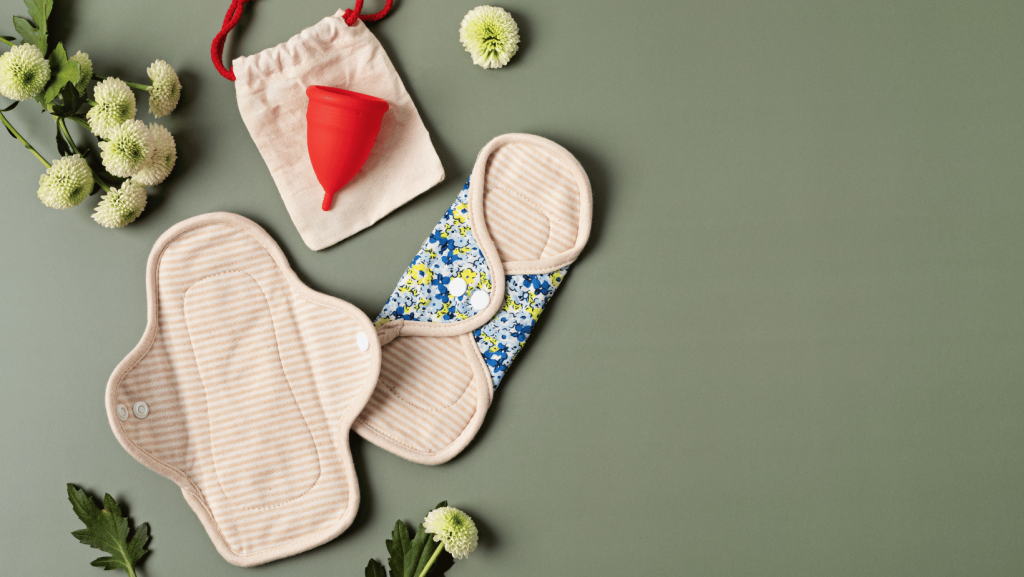Menstruation is a natural and vital part of a woman’s life cycle, yet it’s often accompanied by discomfort, pain, and emotional turmoil. In Ayurveda, the ancient Indian system of medicine, menstrual wellness is considered integral to overall health and vitality. By understanding the principles of Ayurveda and adopting its holistic approach, women can navigate their menstrual wellness with greater ease and harmony.
Menstruation according to Ayurveda
- In Ayurveda, menstruation is a natural purification process for women—a detoxification mechanism rather than a source of impurity. Rather than rendering a woman unclean, her menstrual cycle aids in self-purification by facilitating the removal of toxins and impurities from the body. This cycle is a unique advantage exclusive to women, emphasizing the inherent wisdom and beneficial nature of this natural bodily process.
- This blog post aims to delve into Ayurvedic insights for menstrual wellness, offering practical tips and guidance for women to embrace their cycles
Doshas and Menstrual Wellness: Understanding Ayurvedic Perspectives
Vata
As Vata moves through the bloodstream and reaches the uterus, its cold nature, dryness, and rough qualities contribute to a sensation of constriction or tightening. In instances of discomfort, it typically indicates some level of disturbance or obstruction in the smooth flow of Vata. Therefore, it’s common for menstrual cycles affected by Vata imbalance.
Pitta
A menstrual cycle influenced by Pitta tendencies tends to result in heavier bleeding and a sensation of heat surrounding the cycle. Along with the heat, there is often irritation in the body, which can lead to swelling. Individuals may experience heightened emotions such as anger and agitation.
Kapha
For individuals with a Kapha constitution, the menstrual flow tends to be heavy, often accompanied by clots in the menstrual blood. A Kapha cycle has an excess of water retention or bloating, along with a sensation of heaviness. Their menstrual blood may appear thicker and more mucousy, and they may be prone to yeast infections or feelings of itchiness.
Let’s look at how different Doshas can take different steps
Vata:
- Consume warm foods and beverages, incorporating spices like ginger.
- Stay hydrated by drinking plenty of fluids, such as warm water or herbal teas.
- Avoid stimulant drinks that may exacerbate Vata imbalance.
- Explore vata-pacifying foods to support balance during menstruation.
Kapha:
- Drink ginger tea to help alleviate bloating and support digestion.
- Steer clear of fried, fatty foods, and dairy products, which can aggravate Kapha.
- Stay hydrated by drinking warm water or herbal teas.
- Explore kapha-pacifying foods to help manage water retention and heaviness.
Pitta:
- Avoid spicy, sour, salty, excessively hot, or oily foods, which can exacerbate Pitta imbalance.
- Opt for sweet, bitter, and astringent foods, and incorporate cooling herbs like coriander and cilantro.
- Stay hydrated to help maintain balance.
- Practice stress management techniques to prevent anger or irritability.
- Consider trying Nasya (nasal administration of herbal oils) when not menstruating to further support Pitta balance.
- Explore pitta-pacifying foods to help keep Pitta in check during menstruation.
Other tips that one can follow to maintain Menstrual Wellness

Basti, or enema therapy, holds significant importance in Ayurveda for addressing the vitiation of Apana Vata, particularly during painful episodes and to prevent dysmenorrhea. This therapy involves administering medicated oils through the rectum to pacify Apana Vata and restore balance. Known for its calming effect on the brain, Shirodhara rejuvenates the nervous system, releases emotions, and alleviates stress-induced menstrual disorders. Many women encounter significant physical discomfort and pain during menstruation, a condition known as dysmenorrhea. Research suggests a correlation between stress levels and the prevalence of dysmenorrhea. Meditation and breathwork is one of the best ways to cope up with this.
Watch the Holistic Wellness Tips by Sri Sri Ayurveda Hospital
Embrace the profound wisdom of Ayurveda for a comprehensive approach to menstrual wellness. Prior to embarking on any wellness journey, it is crucial to consult with a seasoned professional in Ayurveda. Seeking guidance from an Ayurvedic specialist ensures that your wellness plan is in harmony with expert advice, enhancing its efficacy. Uncover revitalized vitality and well-being through the integrative and holistic strategies provided by Ayurvedic menstrual wellness treatments. Embrace the diverse contributions of Ayurveda, encompassing dietary adjustments, herbal remedies, and personalized lifestyle modifications. Discover the transformative power of Ayurveda in elevating your overall quality of life and well-being. Embark on a journey towards holistic menstrual wellness; your path to well-being awaits.
At Sri Sri Ayurveda Hospital, we also offer online consultation support with our Ayurveda specialists to get the right guidance from the comfort of your home. Connect to our specialists and plan an individual path back to health.

